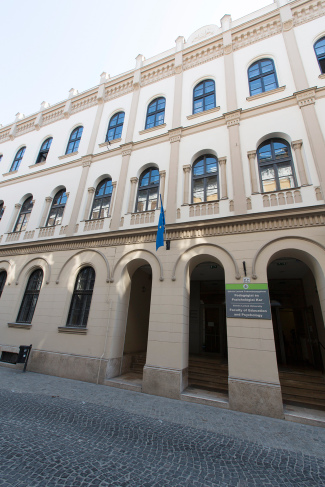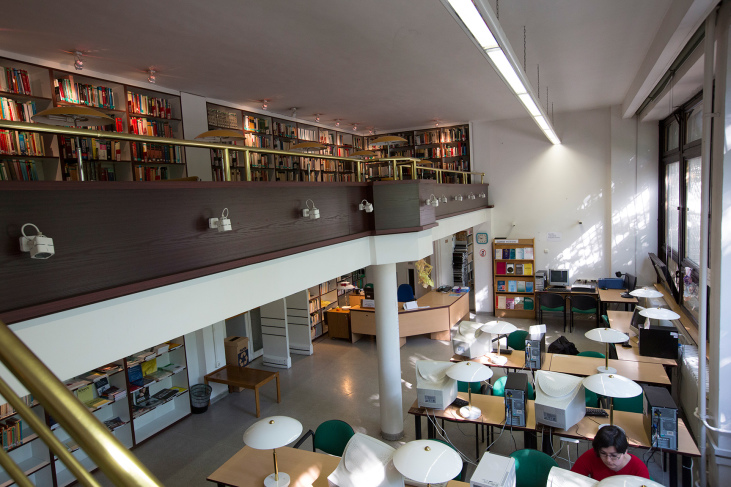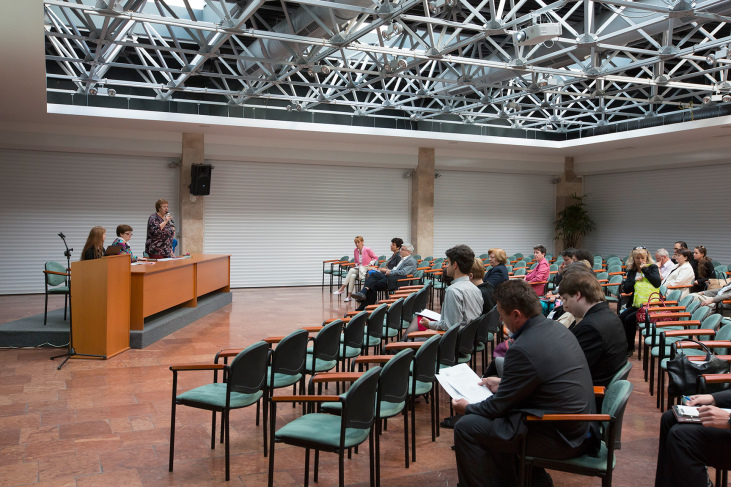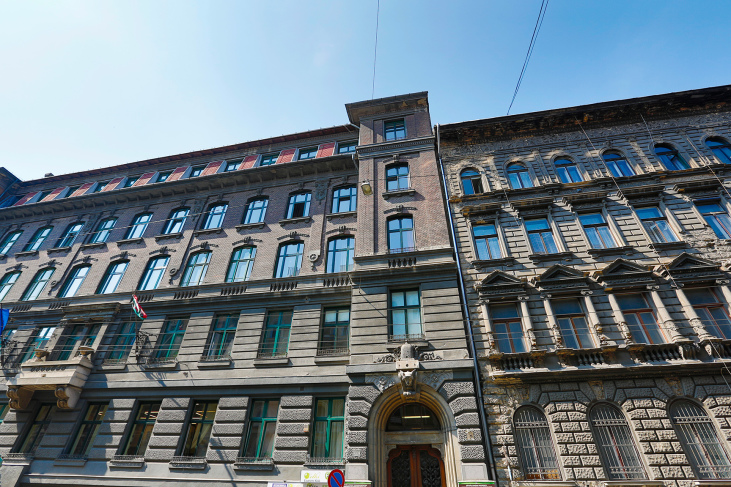Psychology MA
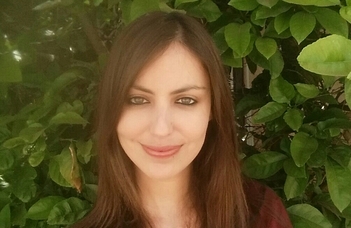
Israel
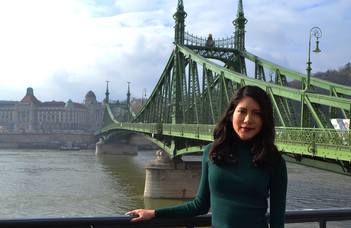
Ecuador

Morocco
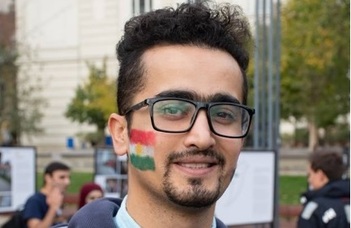
Iraq

Turkey
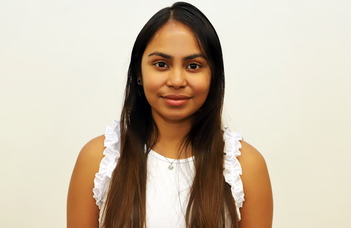
Maldives
Psychology MA
Psychologist
Degree program
Master
OH-FHF/1470-4/2009.
English
4 semesters (2 years)
120
5
150
The aim of the programme is to train psychology professionals who have mastered the theories and methods of psychological science on an advanced level, are proficient in the various subfields of psychology, possess the skills and techniques of psychology as a profession and are able to apply these to help individuals, groups or organizations develop and improve. The programme also aims to provide students with expertise based on the most recent theoretical advancements and practical knowledge in the field, so students develop professional skills and a commitment to psychology as a profession. This solid foundation of knowledge enables graduates to practise psychology as a vocation independently, participate in post-graduate programmes and attend further methodological trainings in psychology.
There are three specialisations available. We cannot guarantee that each specialisation will start in September as it depends on the number of applications received-minimum 12 per specialization.
Developmental and Clinical Child Psychology Specialisation
Person in charge of the specialisation: Judit Balázs, PhD, professor
The educational aims of the Developmental and Clinical Child Psychology specialisation: to offer up-to-date theoretical and methodological knowledge in the domains of typical and atypical development in order to be able to carry out overall diagnostic work, therapy and research in institutions dealing with children.
Our students will gain competence in the following areas:
- Psychopathology
- Diagnostic Processes
- Therapeutic possibilities
- Research in Developmental Psychology and Clinical Child Psychology
Our research groups:
- Neuropsychology and Child Development Research Group
- Social Minds Research Group
- Research Group of Childhood Mental Disorders
Clinical and Health Psychology Specialisation
The educational aims of Clinical and Health Psychology specialisation: to train experts in the applied branches of clinical and health psychology who possess extensive knowledge of diagnostics, therapy and clinical research, who have wide-ranging skills in methodology and who are able to use their Master’s level knowledge of psychology in the service of promoting and improving health.
Our students will gain competence in the following areas:
- Clinical and diagnostic work
- Supportive and motivational communication
- Planning and assessment of health promotion programmes
- The critical assessment and identification of the practical relevance of clinical research.
Our research teams and workshops:
- Health Psychology Research Group
- Research Team in Clinical Psychology and Psychotherapy
- Research Group on Addiction
- Positive Psychology Research Group
- Personality, Health and Emotion Regulation
- Our partners
- Support Centre for Giving Up Smoking- Budapest
- National Institute for Health Development
- Research Institute for Psychology, Hungarian Academy of Sciences
Counselling and Educational Psychology Specialisation
The educational aims of the Counseling and School Psychology specialisation:
- to train professionals – working primarily in the practical areas – who are equally familiar with the socialisation issues of childhood, adolescence and adulthood, who possess the necessary skills in their theoretical preparedness as well as in their diagnostic and counselling methods used in practice to work with clients of various age groups,
- they can primarily be employed by childcare institutions (nursery and pre-school) and schools, educational advisories and other institutions doing work related to career counselling, life skills counselling and crisis counselling,
- they are familiar with the psychodynamics of individual, group and family counselling.
- Their work in psychological care can especially be useful at the various levels of prevention. Its mission is to facilitate development and change in individuals, groups and family systems alike.
Our students will gain skills in the following areas:
- Life skills, Couple’s and Family Counseling
- Career counselling
- Group counselling
- School psychology
- Educational counselling
- Crisis intervention
- Children’s psycho-diagnostics
- Counseling in health psychology
Our research groups and workshops
- Pedagogical Psychology
- Research Group on Test Methodology for Differential and School Psychology
- Research Group on Teaching Profession and School Psychology
- Research Group on Qualitative Psychology
For more information, please visit the following link: https://www.ppk.elte.hu/psychology_ma_program_
- Top 250 programme (Time Higher Education, 2022)
- Practice-based programme
- 20+ research groups and labs are open to young researchers
- Professional qualifications
- Administrative capacity to assist student life
- Exchange opportunities to more than 70 partner universities
- 3 specialisations available
The programme’s purpose is to train psychologists, who are apprised of the different fields of psychology. They know the profession’s methods and instruments, and are able to use them in order to get acquainted with individuals, groups or organisations, and develop them if necessary. They possess adequate knowledge to continue their studies in a doctoral programme.
Psychologist:
- at companies
- at civil organizations
- in hospitals
- at schools
4,700 EUR
4,700 EUR
120 EUR (non-refundable)
120 EUR (non-refundable)
-
-
Entrance exam fee: 120 EUR (non-refundable)
Entrance exam fee: 120 EUR (non-refundable)
4,700 EUR
120 EUR (non-refundable)
-
Entrance exam fee: 120 EUR (non-refundable)
Yes
01, Sep, 2025
10, Jul, 2025
No
Entry requirements
Applicants must hold a Bachelor’s degree in Psychology or Psychology-related Sciences. However, full credit acknowledgement is given only for a Bachelor’s degree in Psychology. In the case of a Psychology-related Sciences degree, each degree will be considered individually, and transcripts from your Bachelor's degree as well as course descriptions will be requested.
If the applicant takes their final examination during the current semester, and their degree certificate (diploma) is not issued before the last application deadline, a certification is required, which verifies that the applicant will presumably receive a degree. In case of being accepted as a student, however, the applicant must present the diploma upon enrolment at the latest.
This programme is not available for Hungarian citizens.
The educational and outcome requirements are defined by the Ministry of Human Capacities (Regulation No. 18/2016. (VIII. 5.)). The details of the application and admission process are defined by the Organisational and Operational Regulations of ELTE.
Language requirements
Minimum level of language proficiency (oral) (A1-C2): C1
Minimum level of language proficiency (written) (A1-C2): C1
Further comments:The language of instruction for the entire programme is English, so a very good command of English is required during the oral entrance exam and throughout the whole programme. The language knowledge is assessed and evaluated during the interview, the Faculty of Education and Psychology doesn't require an official language certificate.
| Document | Comment |
| Online application form | - |
| Bachelor-level degree | - |
| Transcript of records | |
| CV | - |
| Motivation letter | The letter should contain approximately 2000 characters. You should explain your experiences and ideas, how you met psychology and why you thought this profession would be suitable for you, what your aim is with the MA degree, how you would imagine your career, which area you are interested in, what further studies you are planning and which specialisation you would like to apply for. |
| Copy of the main pages of the passport (needs to be valid) | - |
| Copy of application fee transfer | - |
| Entrance exam fee | - |
| Reference work | It can be any paper written in English by the applicant within the field of psychology (BA thesis extract, a research paper, a seminar paper, a research report, a published journal article or a book chapter, a case study, a literature review, etc.) Either a new paper or an improved version of an earlier work can also be written for the current application. The ideal length should be between 5-15 pages excluding references and the appendices. There are no special requirements concerning the format. |
| Other: An official English translation of the certificates and the records if the language of the original is not English | - |
Applicants must hold a Bachelor’s degree in Psychology or Psychology-related Sciences. However, full credit acknowledgement is given only for a Bachelor’s degree in Psychology. In the case of a Psychology-related Sciences degree, each degree will be considered individually, and transcripts from your Bachelor's degree as well as course descriptions will be requested.
The application starts in the online application system. Students need to register in the system, fill in the online application form, upload the required documents and follow the instructions during the application process.
The application and the entrance exam fee should be transferred to the following account:
- Name of Bank: Magyar Államkincstár (Hungarian State Treasury)
- Address of Bank: Budapest, Váci út 71, Hungary – 1139
- Holder of the account: Eötvös Loránd Tudományegyetem
- Account No.: 10032000-01426201-00000000
- SWIFT Code: HUSTHUHB
- IBAN Number: HU03 1003 2000 0142 6201 0000 0000
- On the transfer order please put down your full name and “AB01 B102 B10208/18”!
The deadline for application means the deadline of submission of the full and complete application package in the online system.
The application procedure includes 5 periods in order to give the applicants the freedom to submit their application when it’s most suitable for them. The applicants of each period have the same chance to get admittance for the programme. However, please note, that the Faculty of Education and Psychology ELTE reserves the right to cancel the entrance periods in case the number of the admitted applicants reaches the limit during the previous entrance periods.
- Period 1: 25 February
- Period 2: 25 March
- Period 3: 25 April
- Period 4: 27 May
- Period 5: 15 July
When the university receives the full application package and it is checked by the Student Affairs and Registrar’s Office an entrance exam date option will be sent in the online application system after the application deadline for the relevant period. Please, check your messages in the online application system, and the e-mail address that is linked to the account regularly.
Procedure of the entrance examination
The entrance exam consist of three parts.
The applicant is expected to talk about their motivation, earlier psychological studies, future plans besides the reference work submitted in the application.
Then, a discussion follows about an academic psychology-related article, which the applicant receives one hour prior to the interview. The article is from a field of the chosen specialisation. For example, in case of Clinical and Health Psychology Specialisation, the article will be about a research in that area. The applicant has one hour to read the article and make notes. Any additional help can be used (e.g. a dictionary). Then the examiner will start a discussion about the article and may ask the applicant to summarise it and will ask several questions:
- about its content
- about the methodology
- about the results and their application
- what could be improved
- what would be a suitable next step in the research.
During the entrance exam emphasis is laid on the the applicant' theoretical background, critical methodological analysis, statistical procedures, knowledge of the relevant vocabulary, placing of the results within the relevant field of research.
Finally, the interview gives room for questions coming from the applicant.
Successful applicants must have a good command of English and pass the entrance exam.The entrance exam can be taken personally or via an MS Teams meeting. (The application does not need to be downloaded, the meeting is accessible through the browser.)
For more information and guidance regarding the evaluation, as well as how to get prepared, please check the following website: http://applyppk.elte.hu/programme/psychology-ma/
The applications are examined by the Admission Board and applicants are notified of the outcome of the selection in the online application system. The ranking is based on a total evaluation of the academic excellence (based on the submitted documents) and the results of the entrance exam. Admission letters are sent out in the online application system.
Adrien RIGÓ
associate professor
Violetta FRANK
International Admission Coordinator
E-mail: admission@ppk.elte.hu
TEL: +36 1 461 4500 / 3499
Postal address: 1075 Budapest, Kazinczy utca 23-27.
Psychology MA at the Faculty of Education and Psychology
Psychology MA at the Faculty of Education and Psychology
0
/
0








0
/
0

